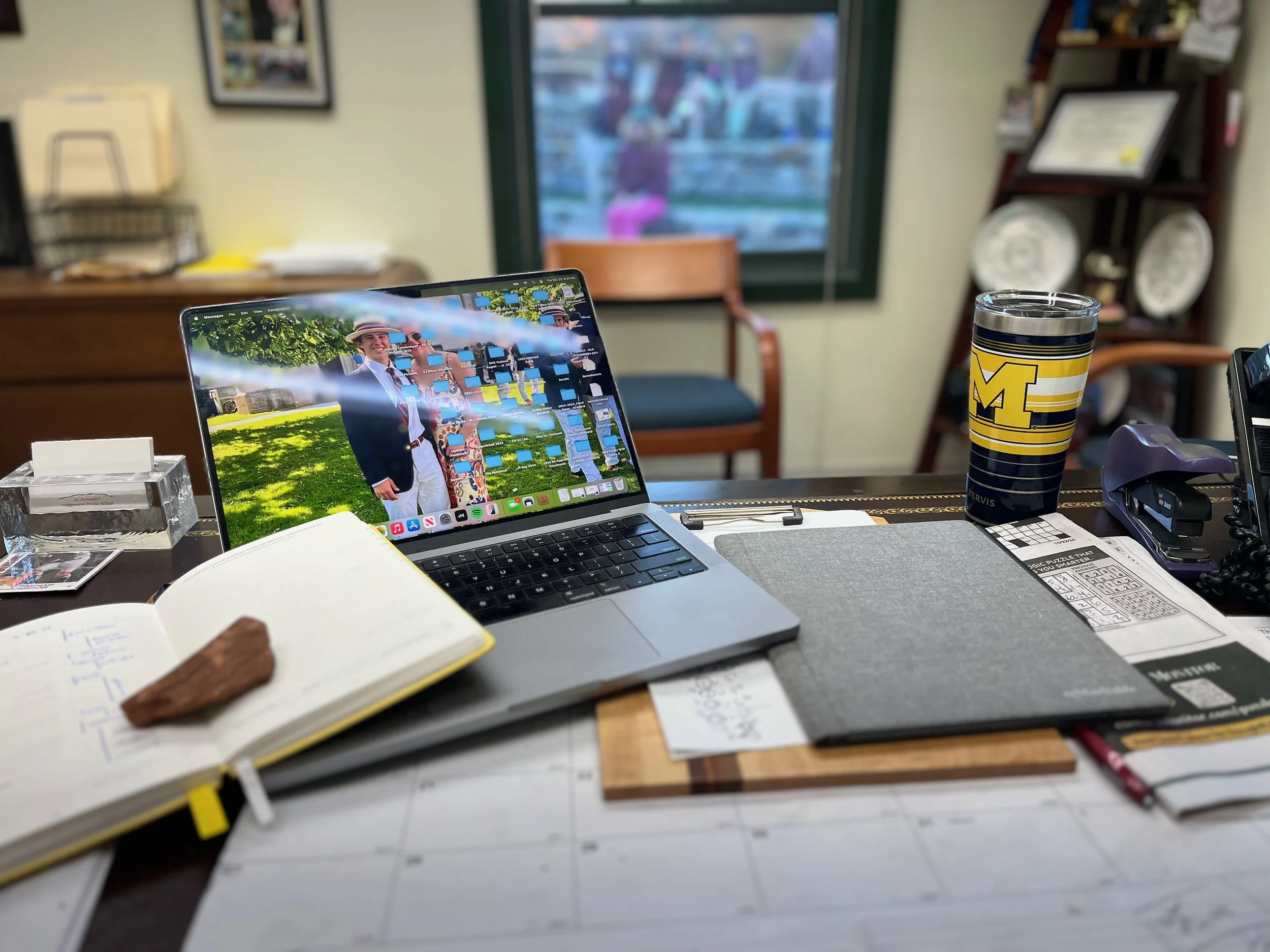Due to several circumstances, this week I had to clean the school on Thursday night. All told it was not an unbearable task, but it wasn’t easy either. As I was going about my tasks, a voice popped up in my head, asking why I needed to be so thorough. The voice went on to taunt me, saying, certainly the boys would never notice if I cleaned their bathroom well or not. To quiet that voice, I thought of my Grampa Johnson.
Grampa Johnson was what nowadays would be called, Old School. He was a Marine that served in both World War II and was recalled to serve during the Korean Conflict. Family lore has it that he was the first football player in Maine to wear a face mask, as he had broken his nose too frequently. Growing up, Gramp was an amazing role model, and his work ethic was legendary. When not working his regular job or coaching youth football, he was known to frequent a local orchard to help out with odd jobs around the farm. As a child, I thought that when one became an adult, a switch just flipped, and everyone had this same work ethic. In my mind, adults did work and never questioned why or if it was too hard, they just did it.
Now I know differently, that voice telling me to take the easy way out is there for all adults. Just as it was there for me, it was there for Grampa J too. Thursday, and most times that the voice pops up telling me to take the easy way out, I think to myself, Grampa J never asked whether it was easy or hard, he asked what was right. If it was the right way, then it was worth doing. Right away, my mindset went from seeking ease to a sense of gratitude. I was so lucky to have a role model that taught me that the question is not easy or hard, but right or wrong. Once I had considered this, I cleaned the rest of the building with peace of mind – and did a good job, if I do say so myself.
I shared this story with the students during Community on Friday. I also shared with them the notion that they are lucky to have the teachers at BHS as role models, as they, like Grampa J, also seek to do what is right, not what is easy. Day in and day out, our faculty strive to do what is right, even if it is more work or takes a little longer. I was lucky to have Grampa J to model right over easy – our students are lucky to have the faculty.

